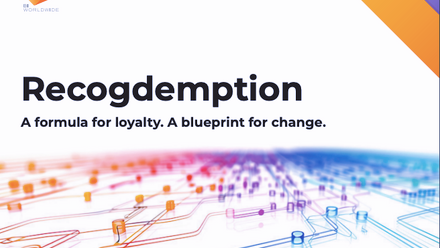Have employees' reward priorities shifted? Is monetary reward as important as it once was?

The rising importance of financial resilience
Regardless of financial position, Covid-19 has made everyone think more about money, and I’m not talking about salary here, but capital. People are concerned about making sure they have enough in savings should the worse happen. In other words, they are concerned with becoming more financially resilient and they expect their employers to help them with this.
Helping employees become financially resilient is about offering a comprehensive financial wellbeing programme. Financial wellbeing benefits that incorporate financial education programmes with practical solutions are far more important post-pandemic than they ever were before – 69% of employees want support from the employers, according to our Coronavirus crisis and financial resilience (May 2020) research.
The same research also found that Covid-19 has made 77.5% of employees realise that having savings to fall back on is important. Even if employees have been relatively unscathed financially by Covid-19, their confidence is shaken – four out of 10 employees say they don’t feel they have job security, according to Aon’s The Rising Resilient (2020) report.
And although this will no doubt improve over time; employees will not forget the sudden turn of events with Covid-19 and will want to make sure they have a financial buffer to fall back on – just in case. 40% of employees told us in our September 2020 research on financial security and its importance that they are saving now just so they have something to fall back on.
As far as what employees are looking for from their employer, the number one priority is providing access to a workplace savings scheme. Although employees are looking to their employers to provide financial education, the emphasis is now very much on practical solutions. Our Coronavirus crisis and financial resilience (May 2020) research found that 71.5% of employees think their employer should offer a workplace savings scheme.
A shift in social conscious
Yet trends point towards another major shift in the benefit space, around pensions. Employees, especially younger employees, have very different expectations around their pensions. This is due to the mounting awareness that pension investments contribute to climate change.
Carbon emissions have fallen dramatically over the last year due to lockdowns that have cut the transport industry severely. With this climate and carbon analysis and comparison, the pandemic has heightened awareness around environmental issues, with 70% of respondents to Boston Consulting Group’s July 2020 research saying that since Covid-19 emerged, they are more aware of the threat of human activity on the environment and climate than they were before. Figures from YouGov also show that, for those under 25, the environment is the second most important issue for them after health.
This renewed awareness is starting to make its way into the pensions space as employees are learning that their pensions, through the companies they invest in, are helping to pay for 23 tonnes of CO2 emissions a year*. Our climate change pensions research (December 2020) revealed that 68.6% of employees are concerned that their company pension could be investing in businesses that are contributing to climate change, and 88% of employees want their employer to take some sort of action including moving to a pension provider that is making a positive impact on climate change.
A route to pensions engagement?
As we all know, getting younger employees engaged with pensions is not easy and this is probably in the main due to the time horizon – it’s difficult to get someone focused on a benefit that only comes to fruition in 20, 30- or 40-years’ time. But younger employees are now starting to realise that there is power in capital and although retirement might be a long way off, their pension can be a force for good now. It’s a great reason for employees to feel more engaged – to know that their pension is helping to tackle climate change and reduce carbon, as well as giving them funds for retirement.
It’s not that pensions have increased in priority necessarily, but Covid-19 has prompted a change in the value that employees expect from them. They want the pension to have a positive impact on the planet, now.
In many ways Covid-19 has left a permanent mark on the world and in the reward space, it has changed employees’ priorities and values to the extent that what previously attracted, retained and motivated people is not the same now. Employees’ concept of an ideal benefit mix has changed and it’s heavily weighted towards financial wellbeing.
This article is provided by Cushon.
* (Average UK pension pot is £87,947) x (FTSE 100 CO2e emissions of 480m tonnes / £1.8 trillion market cap = 0.265 tonnes per £1,000 market cap) = equivalent of 23.3 tonnes of CO2 emissions per pension pot.
Supplied by REBA Associate Member, NatWest Cushon
NatWest Cushon is a workplace pensions and savings provider with an award-winning proposition.







